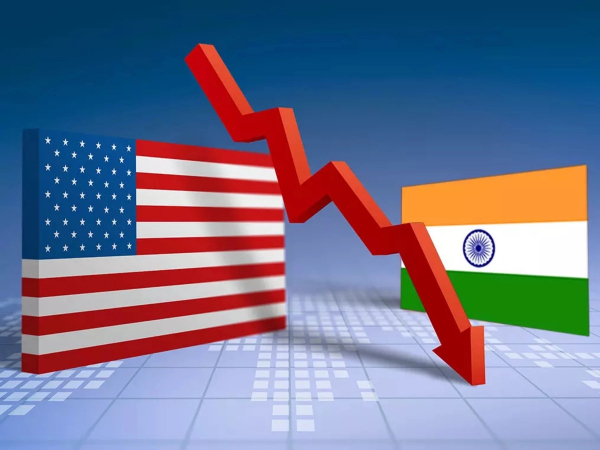Indian companies are experiencing the most significant earnings downgrades in Asia, as analysts slash forecasts due to heightened risks from steep new U.S. tariffs. According to LSEG IBES data, forward 12-month earnings estimates for India’s large and mid-cap firms have been cut by 1.2% over the past two weeks. This trend follows a consistently lackluster quarterly earnings season, extending a period of corporate weakness that began last year and has pressured the country’s benchmark equity indexes.
While India’s economy is largely domestically driven, the threat to growth is substantial. Analysis by MUFG indicates that sustained U.S. tariffs—which have risen to as high as 50% on certain goods—could eventually reduce India’s GDP growth by a full percentage point. The impact is expected to be most severe in employment-sensitive sectors like textiles, even though Nifty 50 firms derive only about 9% of their revenue from the U.S.
In response to the emerging trade conflict, Prime Minister Narendra Modi’s government has proposed sweeping domestic tax cuts aimed at buoying consumption and cushioning the economic blow. Economists at Standard Chartered estimate these fiscal measures could boost GDP growth by 0.35-0.45 percentage points in the future. This intervention is seen as crucial, as corporate earnings growth has remained in single digits for five consecutive quarters, a sharp slowdown from the 15%–25% growth seen in recent years.
The confluence of external risks and internal sluggishness has dramatically altered investor sentiment. A recent Bank of America survey shows India has tumbled from the most-favored to the least-preferred equity market in Asia within just two months. With valuations still considered elevated, the tariff environment could trigger a broad market re-rating, making domestic-oriented stocks more attractive but reflecting a more cautious outlook for the once high-flying market.














